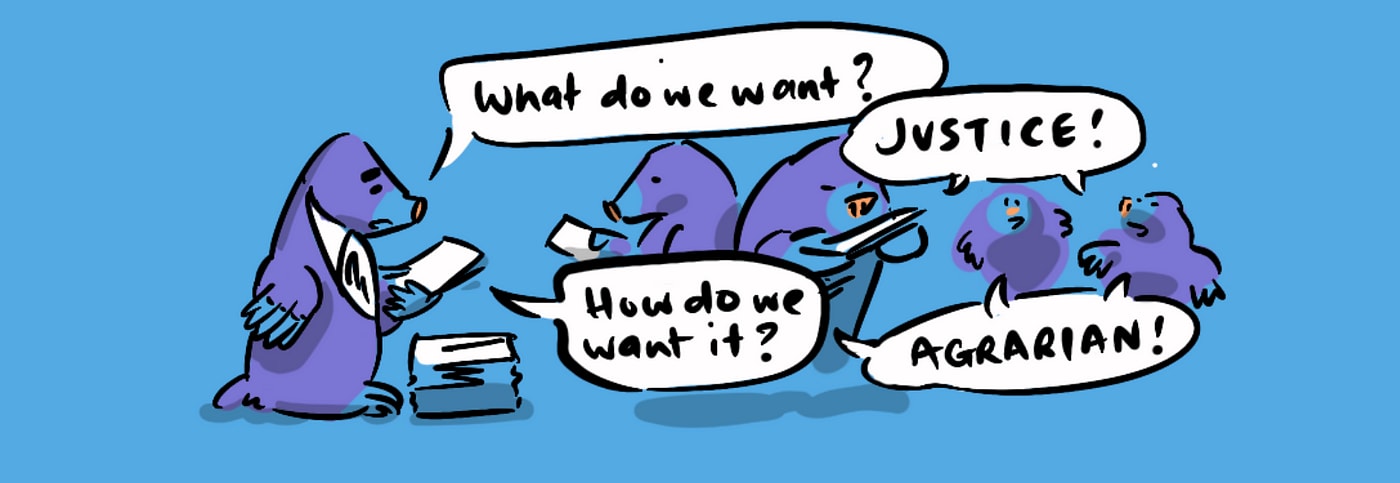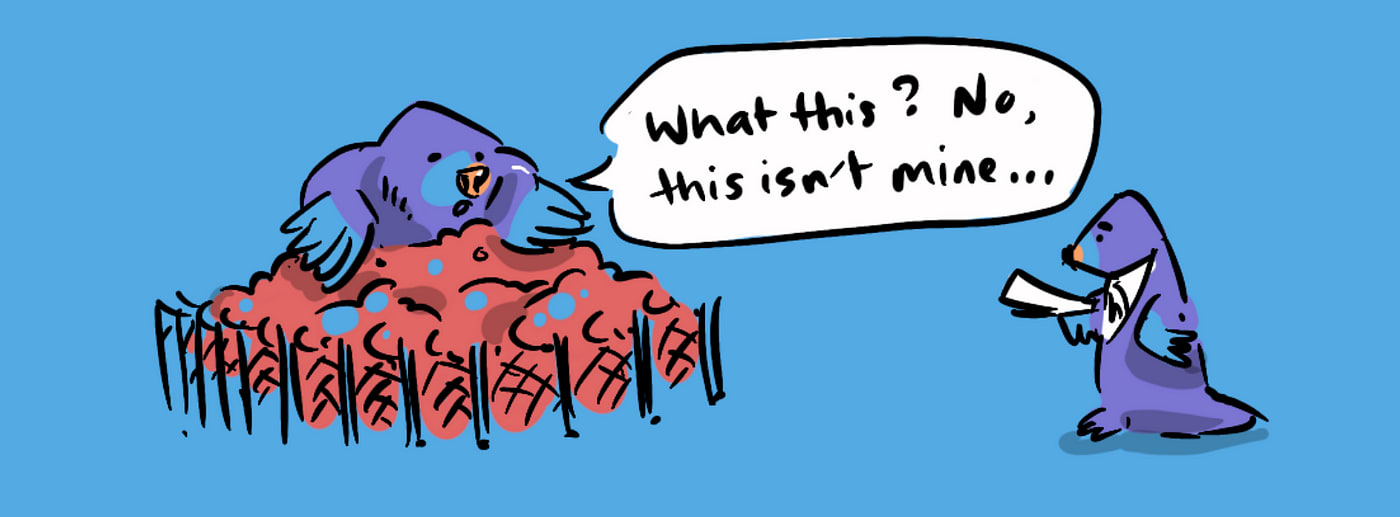The System Didn’t, and Doesn’t Need to be This Way ~ Thomas Paine on Economic Justice
post by James Stephen Brown (james-brown) · 2025-04-19T05:16:05.682Z · LW · GW · 3 commentsThis is a link post for https://nonzerosum.games/painejustice.html
Contents
“Civilised” Poverty Ground Rent More Than Land Today 3% and R > G Is it Possible? So… None 3 comments
In his 1797 pamphlet ‘Agrarian Justice’, Thomas Paine makes an impassioned case for land and wealth taxes based not on charity or even expedience, but on the injustice inherent in the ownership of private property. Paine shows that right from the inception of our modern societies, the option to tax wealth and land has been a justifiable, well-considered and practicable option.
“There could be no such thing as landed property originally. Man did not make the earth, and, though he had a natural right to occupy it, he had no right to locate as his property in perpetuity any part of it; neither did the Creator of the earth open a land-office, from whence the first title-deeds should issue.”” — Thomas Paine
Paine makes the important point that no human made this land. At the same time he acknowledges the non-zero-sum benefits of private ownership for the purposes of cultivation and personal security. Yet the fact remains that the means by which the initial proprietors acquired private land is necessarily not just, but is rather a result of luck (the first to be there), might (the first to gain dominance) or plain theft.
“In advocating the case of the persons thus dispossessed, it is a right, and not a charity, that I am pleading for.”” — Thomas Paine
While the current owners have paid for the land—making it unjust for the government to simply expropriate it—it stands that the people who don’t own private land have effectively been dispossessed of their “natural right” to land.
“Civilised” Poverty
This dispossession is set in high-relief when Paine observes that many “civilised” poor live in greater poverty than indigenous populations, whom he praises for having no extreme poverty despite living without the benefits afforded by modern civilisation.
“To understand what the state of society ought to be, it is necessary to have some idea of the natural and primitive state of man; such as it is at this day among the Indians of North America…” — Thomas Paine
Given that the cultivation of the land provides added value, Paine contends that it is therefore not justified that anyone, as part of this system, has worse living conditions than they would in a society without such added value.
“The thing, therefore, now to be done is to remedy the evils and preserve the benefits.” — Thomas Paine
Ground Rent
Paine proposes that those who own land should pay a Ground Rent of 3% of the land value. This ground rent would produce a fund that could compensate for the loss of natural inheritance by means of:
- a large lump sum for all citizens at age 21
- a pension
It’s important to note that ground rent is not equivalent to ‘rates’, as rates are merely absorbed as general expenses for the upkeep of a property’s surroundings and facilities.
More Than Land
He goes further to point out that those that benefit from wealth (not just land) in this civilisation, do so owing to society—without which their affluence would not be possible.
Personal property is the effect of society; and it is as impossible for an individual to acquire personal property without the aid of society, as it is for him to make land originally.
He proposed that a 10% inheritance tax would go to pay this debt to society.
Today
It might be argued that in many western countries we have reached a level where even our poorest live above a level of pre-agricultural societies. Even granting this, the same cannot be said of sweatshop workers in poorer countries who make our clothes and electronics, who are part of our global society too.
Even in wealthy countries, Paine’s logic holds that vast (and growing) differences in wealth are unjustified, when based (largely) on an accident of history.
3% and R > G
The number of 3% maps perfectly on to Thomas Piketty’s shortfall between the rate of return on investment and the growth of the economy, which he encapsulates in his simple formula R > G; where R = 4.5%, and G = 1.5% with the shortfall being 3%. A tax at this level would neutralise the advantage of investing in land, returning it to its proper role as a place to live, not a means of accumulating passive wealth.
Is it Possible?
Opponents of wealth taxes claim they are simply not feasible. In Agrarian Justice Paine goes into great detail about how to implement these taxes, providing specific numbers and demonstrating balances pertaining to the population and budget of the time. But is it possible today?
The benefit of Paine’s proposal is that the taxes are applied to tangible assets and clear transferals of wealth; land and inheritance. While wealth can move around easily, land cannot. Inheritance tax can be avoided through transferring wealth throughout one’s life rather than in a lump sum upon death, but this, in itself, is a form of redistribution. If the wealthy are incentivised to shift their wealth to younger family members, and they in turn are incentivised against investing that money in static assets like land, then more money flows into the working economy, which actually leads to greater economic redistribution and growth.
There are many mechanisms to avoid taxes of all types. As I see it, this is a reason to address those mechanisms, not to resign ourselves to the status quo. Paine reminds us that at some point we designed and built these systems, and they could have been very different. Imagine building an income tax system from scratch today, seems pretty unfeasible, right? And yet countries around the world have such systems.
So…
Thomas Paine wasn’t just a revolutionary rabble-rouser—he was one of the first to articulate a rights-based justification for redistributive wealth policy. His ideas remain uncannily relevant, and his proposal was neither utopian nor punitive. It was simply just.
3 comments
Comments sorted by top scores.
comment by Mis-Understandings (robert-k) · 2025-04-19T14:15:28.107Z · LW(p) · GW(p)
Problem is that the relation of asset values to realized returns (that they will equalize between assets with fixed returns), means that any tax on asset returns immediately reflects in the valuations. But that is not the end of the world, since if you hold assets, paine would argue, you can afford a haircut.
Replies from: robert-k, james-brown↑ comment by Mis-Understandings (robert-k) · 2025-04-19T14:16:31.522Z · LW(p) · GW(p)
You would need to make sure that this change in asset values does not wipe out highly leveraged players. But that is also a thing that has been done in the past. (see 2023 banking failures for what happens).
↑ comment by James Stephen Brown (james-brown) · 2025-04-19T18:29:41.500Z · LW(p) · GW(p)
Yes, I would see falling valuations as an additional solution rather than a problem. Paine's proposal would absolutely affect housing prices, correcting their inflation rate to that of other goods (rather than being 5-10x higher). Housing would cease to be a threshold for runaway wealth accumulation (and inequality), and would become affordable for ordinary people.
I say this as a person who owns two houses, this is not technically in my individual interest right now, but it's a fairer system. As you say, I'll still be able to afford a haircut.
I agree measures would need to be taken to protect people who are over-leveraged, and would have to be implemented gradually so as not cause massive instability. Paine benefitted from the fact that his economy was only just beginning (well, at least amidst a revolution), while ours is in full swing.





